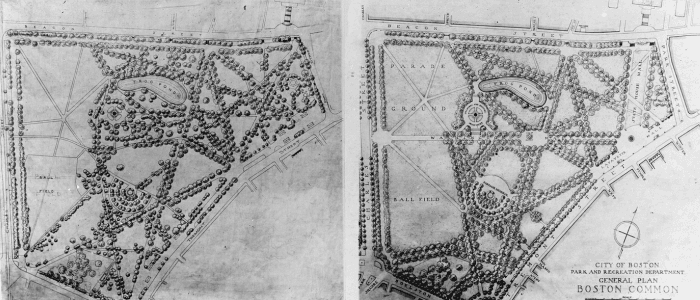Boston's Parks & Public Spaces

MHS Event
Professor Andrew Robichaud and students from Boston University will present rare archival items from the Massachusetts Historical Society
This is a FREE in-person event. Light refreshments will be served after the program.
How and why did Boston’s parks come to be? What did they mean to those who created them? How have they changed over time? In this public presentation, Professor Andrew Robichaud and students from Boston University will present rare archival items from the Massachusetts Historical Society related to these questions, shedding new light on the Boston Common, Louisburg Square, Commonwealth Avenue, Franklin Park, the Victory Gardens, and more. Light refreshments will be served after the presentations.
This event is offered in conversation with the concurrent exhibition, “Boston Views: Through the Lens of Arthur A. Shurcliff,” which presents a variety of Boston cityscapes during the first decades of the 20th century.
By registering you are agreeing to abide by the MHS Visitor Code of Conduct.
